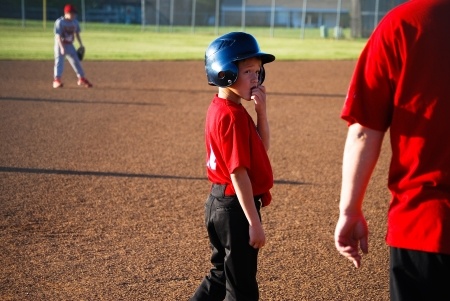Constructive Ways to Give Feedback
Today we share some coaching tips on some constructive ways to give feedback to young players.
Children are constantly learning new skills and new ways of engaging with the world around them. They look to us for guidance and direction, and the praise that we provide them needs to be sincere and constructive in order to support the development of their creativity. Every child is a unique individual, and praise and constructive criticism should be tailored for each child. Praise helps motivate young players to be their best, and motivation is the key to getting the most out of baseball.
Don’t Avoid Criticism, Just Make Sure it is Constructive Criticism
Like adults, kids know when they have done something that they could have done better. If you offer praise for something that they know was not all that great, they won’t be fooled. Kids appreciate guidance and support in the form of constructive criticism. Constructive criticism is essential for children to feel that there is room for improvement, and in providing them with this kind of feedback, they will understand that you are treating them with respect and fostering a supportive environment.
Constructive criticism can be defined as feedback, both positive and negative, with the purpose of improving the outcome. This feedback needs to be given in a friendly manner, and not in a negative or oppositional way. Furthermore, the constructive criticism must be focused on an action or behavior as opposed to the child himself / herself.
Receiving constructive criticism is essential for your child’s emotional development. If a child always thinks that what he or she does is always correct, or always perfect, it will be very difficult for him or her to face reality outside of the bubble of protection you provide.
Keep in mind that kids often know what they have done wrong, and when you provide them with what you may think as instruction, they may perceive it as criticism. Constantly pointing out errors that they make out on the field doesn’t always help them to improve, and can often hurt motivation. Often times, you can see by their expression that they know what they have done.
The Sandwich Technique
The ‘sandwich technique’ is touted as one of the most effective ways to communicate difficult messages, and it is also something that you can employ when providing feedback to children. When using this messaging technique, you start and end the message with meaningful praise, with the more difficult criticism, and a possible solution (if appropriate) sandwiched in the middle.
It could sound something like this:
“I can tell that you have been practicing batting quite a bit since the beginning of the season. It was impressive that you were able to hit so many balls at today’s game! You must be proud of the improvement! How about instead of batting, you focus now on catching ground balls? I saw you had some trouble with them during the game, and I noticed how disappointed you seemed with yourself. If you can put even half as much time and energy into ground balls as you have into batting, I’m sure you’d be able to get them all. As the coach says, you’re a great asset to the team. I’m really proud of you.”
This approach emphasizes the success that the child has experienced out of the field, recognizes the hard work that has been done, and looks at where there might be an opportunity to improve even more. The constructive criticism approach can be given by coaches or by parents.
Be Authentic When Giving Praise
Both on the field and off, when you give praise, make sure it comes from a place of authenticity. If you say “good job”, make sure you really do mean it. Kids soak up praise like sponges, and we want to keep them absorbing positive feedback! Meaning what you say, and saying what you mean are the keys to authentic praise.
When giving praise to a child, be sure to point out the particular things that have most struck you. “Nice catch,” says one thing. “The catch that you made at the end of the second inning was unbelievable – I could see your practicing has really paid off,” says something very different. Noticing the details is also a form of praise.
On the Field and Off the Field
Timing is everything. Some kids make a mistake and then automatically look to their coach for feedback. Others need a few minutes to process what just happened before seeking support from their coach.
On the field, particularly during a game, it is important to keep players in the moment and motivated. It’s important that coach and parent feedback is positive in order to keep players motivated during a game. Off the field, it’s possible to engage in deeper reflection and discussion.
Good luck!

